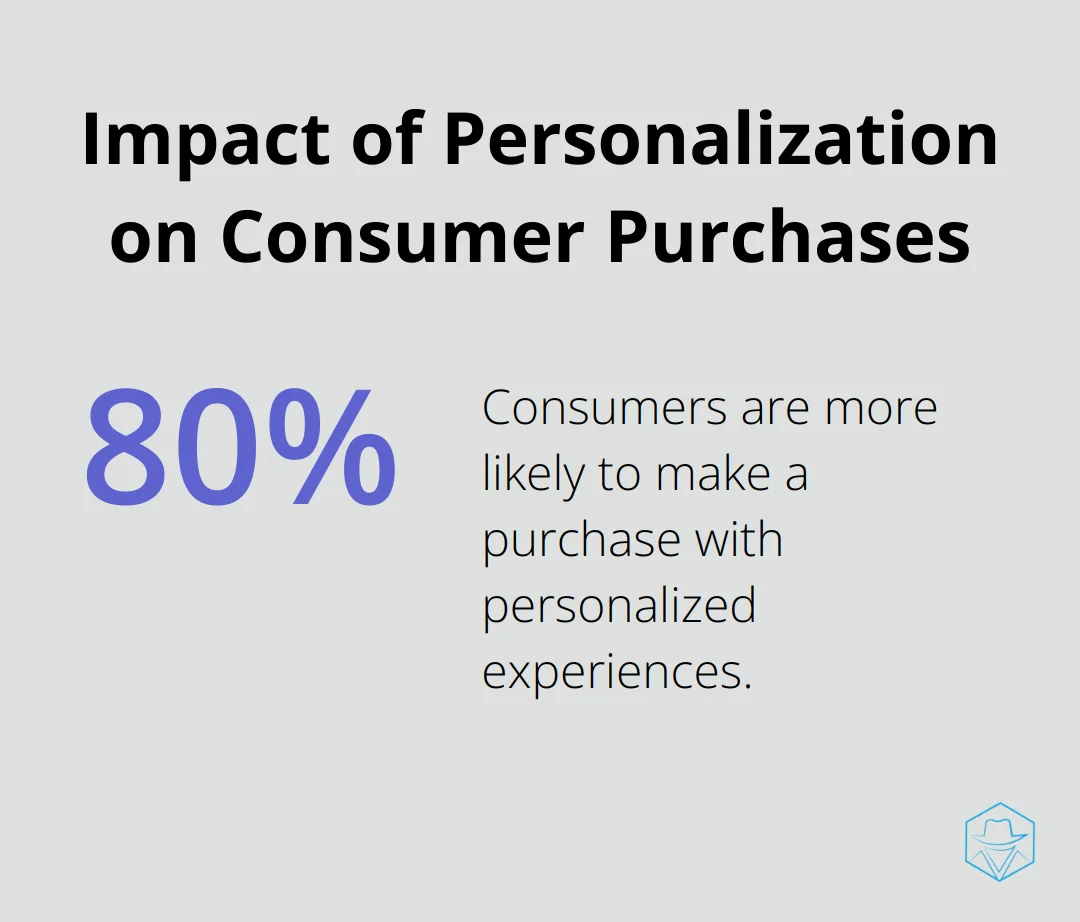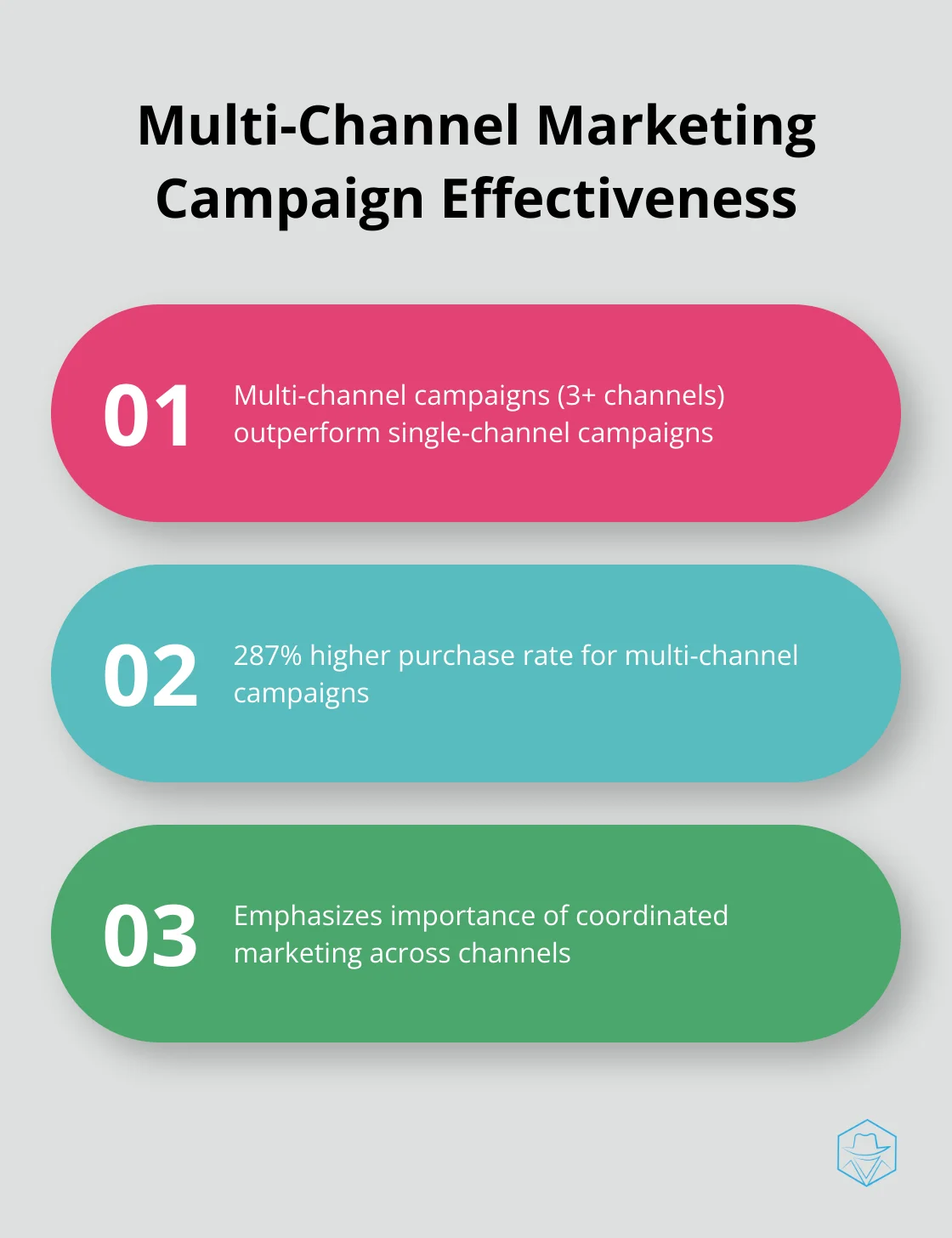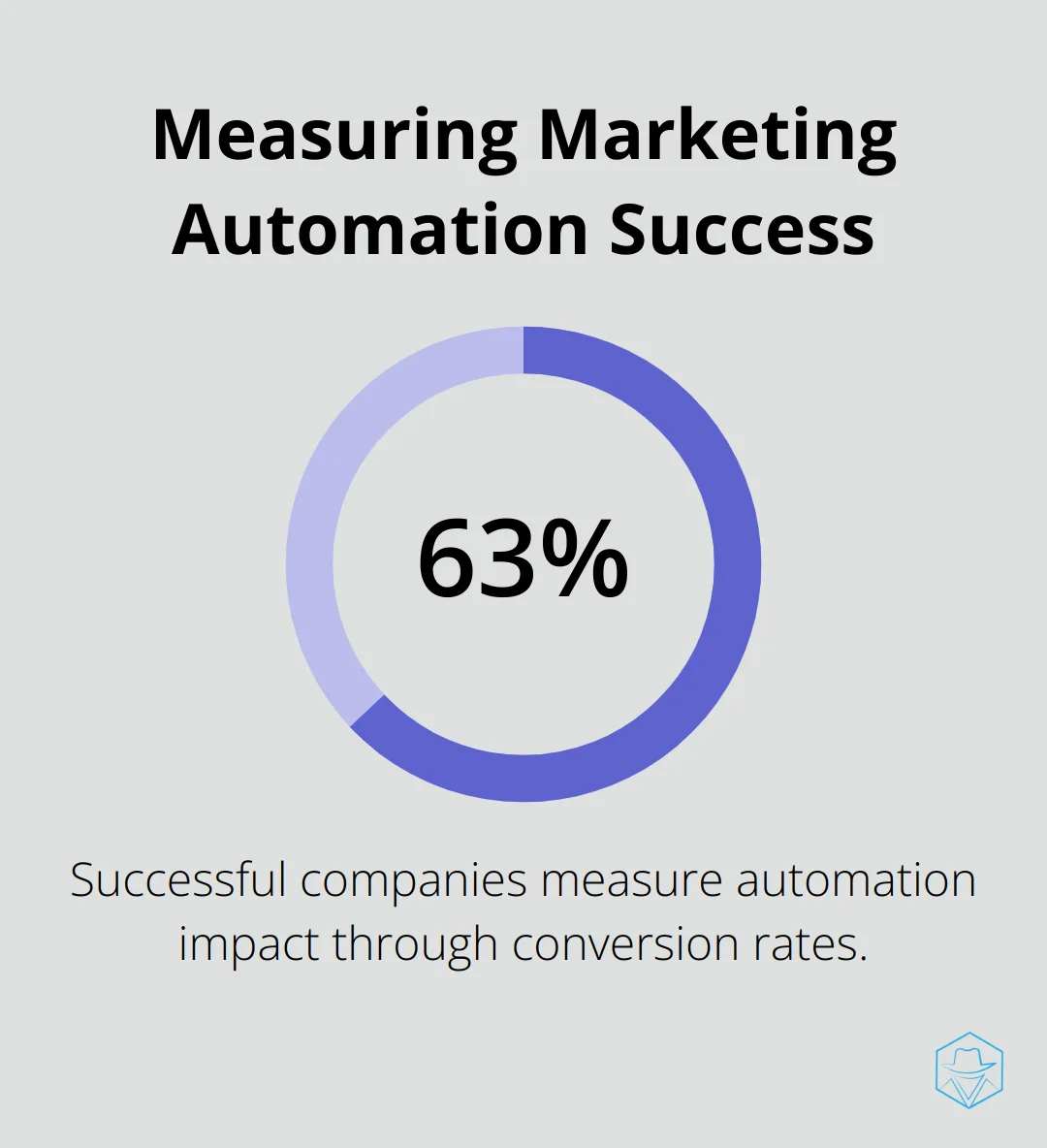Marketing Cloud Automation: Boost Your Campaigns

At Drop Cowboy, we’ve seen firsthand how marketing cloud automation revolutionizes campaign management.
This powerful technology streamlines processes, enhances personalization, and drives better results across multiple channels.
In this post, we’ll explore the key features of marketing cloud automation and how it can supercharge your marketing efforts.
What Is Marketing Cloud Automation?
The Evolution of Marketing Technology
Marketing cloud automation represents a significant leap forward in marketing technology. This set of tools and technologies automates repetitive marketing tasks, freeing teams to focus on strategy and creativity. The integration of customer data, analytics, and multi-channel campaign management into a single system marks a new era in marketing efficiency.
AI-Powered Decision Making
At the heart of marketing cloud automation lies artificial intelligence and machine learning. These technologies analyze customer behavior, predict trends, and automate decision-making processes. The result? More targeted, effective campaigns that resonate with audiences.
Scalability for Businesses of All Sizes
One of the most compelling aspects of marketing cloud automation is its scalability. Small startups and large enterprises alike can tailor these tools to fit their needs. For small businesses, automation levels the playing field, enabling sophisticated marketing strategies without a large team. Larger organizations can manage complex, multi-channel campaigns across global markets with ease.
The Shift to Hyper-Personalization
Traditional marketing methods often rely on broad, one-size-fits-all approaches. Marketing cloud automation, however, enables hyper-personalization at scale. This shift from mass marketing to individualized experiences is crucial in today’s consumer-centric landscape.
A report by Epsilon found that 80% of consumers are more likely to make a purchase when brands offer personalized experiences. Marketing cloud automation makes this level of personalization possible (and practical) by analyzing customer data and automatically tailoring content, offers, and communication channels to individual preferences.

Measurable Impact on Business Performance
The impact of marketing cloud automation on business performance is significant. A study by Forrester reveals that companies which excel at lead nurturing generate 50% more sales-ready leads at 33% lower cost. These statistics highlight the substantial effect that automation can have on a business’s bottom line.
Marketing cloud automation doesn’t just improve efficiency-it transforms the entire marketing landscape. As we explore the key features of this technology in the next section, you’ll see how it can supercharge your marketing efforts and drive unprecedented results.
Unlocking Marketing Cloud Automation Power
Marketing cloud automation revolutionizes how businesses approach their marketing strategies. This powerful technology streamlines processes, enhances personalization, and drives better results across multiple channels. Let’s explore the key features that make marketing cloud automation so effective.
Precision Targeting Through Advanced Segmentation
Modern consumers expect personalized experiences, and marketing cloud automation delivers. These platforms create detailed segments based on demographics, behavior, and preferences. This granular approach allows for highly targeted campaigns that resonate with specific audience groups.
A study by Epsilon found that 80% of consumers are more likely to make a purchase when brands offer personalized experiences. Marketing cloud automation enables the creation and management of these personalized journeys at scale.
Seamless Multi-Channel Campaign Orchestration
Consumers interact with brands across multiple touchpoints, and marketing cloud automation excels at coordinating these interactions. These platforms enable the creation of cohesive campaigns that span email, social media, SMS, and more.
Omnisend reported that marketing campaigns using three or more channels earned a 287% higher purchase rate compared to single-channel campaigns. This statistic underscores the importance of a well-orchestrated multi-channel approach (which marketing cloud automation makes possible).

Data-Driven Insights for Continuous Improvement
Marketing cloud automation provides deep, actionable insights. These platforms offer robust analytics and reporting capabilities that go beyond basic metrics.
Advanced attribution modeling helps understand which touchpoints drive conversions most effectively. A/B testing features refine messaging and design for optimal performance. Real-time dashboards provide a bird’s-eye view of campaign performance, enabling quick adjustments when needed.
Nucleus Research reported that marketing automation drives a 14.5% increase in sales productivity and a 12.2% reduction in marketing overhead. These gains stem largely from the data-driven insights and efficiencies that automation provides.
AI-Powered Decision Making
Artificial intelligence and machine learning form the core of marketing cloud automation. These technologies analyze customer behavior, predict trends, and automate decision-making processes. The result? More targeted, effective campaigns that resonate with audiences.
Scalability for Businesses of All Sizes
One of the most compelling aspects of marketing cloud automation is its scalability. Small startups and large enterprises can tailor these tools to fit their needs. For small businesses, automation levels the playing field, enabling sophisticated marketing strategies without a large team. Larger organizations can manage complex, multi-channel campaigns across global markets with ease.
As we move forward, we’ll explore how to implement marketing cloud automation successfully in your business. The next section will guide you through choosing the right platform, setting clear goals, and integrating these powerful tools into your existing processes.
How to Implement Marketing Cloud Automation
Select the Right Platform
Choosing an appropriate marketing cloud automation platform is essential. Consider your business size, industry, and specific needs. A small e-commerce business might prioritize easy-to-use email automation and social media integration, while a large B2B company might need advanced lead scoring and CRM integration.
Research indicates that companies using marketing automation see a 14.5% increase in sales productivity and a 12.2% reduction in marketing overhead (according to Nucleus Research). However, these benefits only materialize with the right platform fit.
Create a detailed requirements list and compare it against the features of top platforms. Don’t just focus on current needs; consider your growth trajectory and ensure the platform can scale with you.
Define Clear Objectives and KPIs
Establish clear goals and key performance indicators (KPIs) before implementation. This step is often overlooked, but it’s essential for measuring success and guiding your automation strategy.
Common KPIs for marketing automation include lead generation rate, conversion rate, customer acquisition cost, and return on investment (ROI). A study by Ascend2 found that 63% of companies successful with marketing automation measure its impact through conversion rates.

Set specific, measurable targets for each KPI. For example, try to increase email open rates by 25% or reduce customer acquisition costs by 15% within the first six months of implementation.
Train Your Team and Establish Best Practices
Even the most powerful automation platform is only as effective as the team using it. Invest in comprehensive training for your marketing team. This includes not just technical training on the platform itself, but also education on marketing automation best practices and strategies.
Create a centralized knowledge base with standard operating procedures, best practices, and troubleshooting guides. This resource will prove invaluable as your team grows and evolves.
Encourage ongoing learning and experimentation. Marketing automation technology evolves rapidly, and staying current is important. Allocate time for your team to explore new features and attend industry webinars or conferences.
Integrate with Existing Systems
For marketing cloud automation to truly shine, it must integrate seamlessly with your existing tech stack. This includes your CRM, e-commerce platform, social media tools, and analytics software.
A study by Ascend2 found that 52% of marketers cite integrating data across technologies as a significant challenge in achieving marketing automation success. Address this challenge head-on by mapping out your entire martech ecosystem and identifying potential integration points.
Work closely with your IT department or a trusted technology partner to ensure smooth data flow between systems. This integration not only enhances the power of your automation efforts but also provides a more holistic view of your customer journey.
Final Thoughts
Marketing cloud automation has transformed how businesses approach their marketing strategies. It streamlines processes, enhances personalization, and drives better results across multiple channels. This powerful technology enables precision targeting, seamless campaign orchestration, and data-driven insights for continuous improvement.
The future of marketing cloud automation promises even more sophisticated capabilities. Advancements in AI and machine learning will lead to more accurate predictive analytics and hyper-personalized customer experiences. Emerging technologies like voice search and augmented reality will open new avenues for customer engagement.
We at Drop Cowboy understand the transformative power of marketing automation. Our platform combines cutting-edge features with AI-powered technology, enabling businesses to create highly personalized and engaging marketing campaigns. Marketing cloud automation tools like Drop Cowboy can significantly enhance customer engagement, streamline marketing processes, and drive better results in an increasingly competitive digital landscape.
blog-dropcowboy-com
Related posts

April 8, 2025
How to Implement Twilio Branded Calling
Learn to implement Twilio Branded Calling easily and enhance your business communication with a professional touch.

May 6, 2025
HubSpot or Monday: Which Project Management Tool?
Compare HubSpot vs Monday for your project management needs. Discover features, ease of use, integration, pricing, and find your perfect tool.

April 17, 2025
Best Shopify Apps to Boost Your Online Store
Boost sales with the best Shopify apps. Discover top tools to enhance functionality, improve customer experience, and streamline your online store.

April 7, 2025
Pipedrive Marketing Automation: Features and Benefits
Explore Pipedrive marketing automation features that streamline processes, boost productivity, and enhance business growth effortlessly.

April 17, 2025
Top Review Apps to Build Trust on Your Shopify Store
Boost trust with the best review apps for Shopify. Discover top tools that enhance credibility and drive customer engagement on your online store.

August 4, 2025
Ringless voicemail providers
Explore top ringless voicemail providers, compare features, costs, and benefits to enhance business communication strategy effectively.